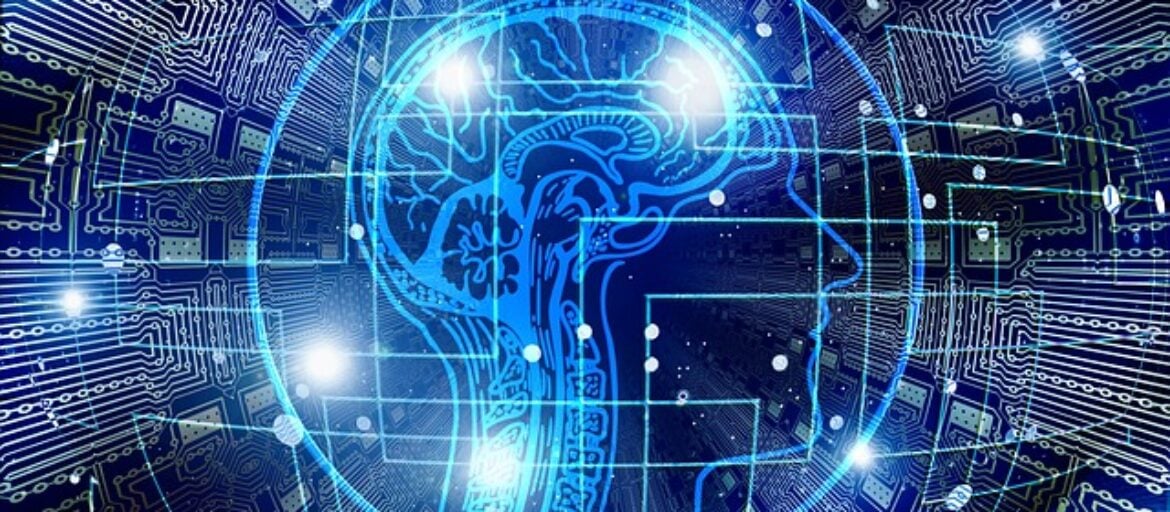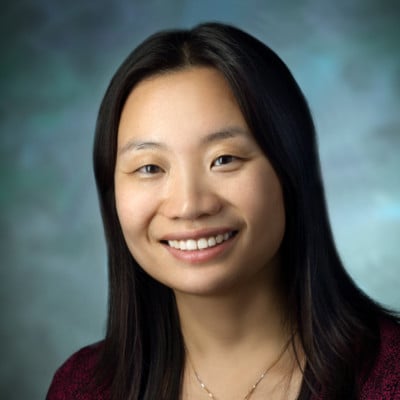Grant recipients hailing from academia, industry, and clinical practice will receive funding to develop new artificial intelligence technologies that promote healthy aging.
The Johns Hopkins Artificial Intelligence and Technology Collaboratory for Aging Research, or JH AITC, has announced the awardees of its fourth round of grant funding. Totaling just over $2.3 million, this round will support a diverse set of research projects and technologies poised to improve the health and quality of life of millions of older adults and their caregivers.
Launched in 2021 with a $20 million grant from the National Institute on Aging, the JH AITC is a national hub for innovation that focuses on using artificial intelligence to improve the long-term health and independence of older adults.
Eleven applicants from academia, industry, and clinical practice were selected for funding through a competitive national grant review process. Each awardee will receive up to $200,000 in direct costs over a one-year period, as well as access to resources and mentorship from Hopkins experts in fields such as computer science, nursing, medicine, and technology commercialization.
This round, the JH AITC invested in projects that support healthy aging, preventative care, data-based diagnostics, and more.
A Hopkins awardee, Rebecca Keener—an associate research scientist in the Whiting School’s Department of Biomedical Engineering—is collaborating with the Rush Alzheimer’s Disease Center to develop a machine learning model that could help doctors identify personalized health interventions to help aging individuals remain robust.
“We know that physical, cognitive, and social factors affect how people age, but we still don’t know how these factors interact with each other,” Keener says. “We want to understand why some people are still robust even late in life so that we can identify personalized interventions that will help everyone prolong their health.”
Aging is also associated with sarcopenia, or the progressive loss of muscle mass and strength. To more quickly and accurately diagnose this condition, Renjie Zhao, an assistant professor of computer science, is creating a portable, affordable tool that uses AI to analyze ultrasound signals from a smartphone and provide reliable muscle health data without the need for costly equipment or complex procedures.
“Our goal is to make muscle health assessments accessible to everyone, not just those who can afford expensive clinical tests,” Zhao says. “We believe that leveraging AI and smartphone technology can bring advanced diagnostics out of specialized clinics and into the hands of health care providers and individuals, ultimately improving early detection and intervention for muscle deterioration in older adults.”
In another pilot, Craniometrix founder and CEO Nikhil Patel and Halima Amjad, an associate professor of medicine at the Johns Hopkins University School of Medicine, are partnering to develop an AI-powered dementia care navigation assistant that can provide real-time support to clinicians and generate evidence-based personalized care plans directly from the comprehensive Johns Hopkins Dementia Care Needs Assessment tool.
“We are excited to link our dementia and technology expertise to scale evidence-based, comprehensive care to patients and families in need of support,” Amjad says. “And the timing couldn’t be better, as dementia care research, technology, and Centers for Medicare and Medicaid Services programs align to prioritize dementia care navigation.”
The last Hopkins-led project is headed by Jerry Prince, the William B. Kouwenhoven Professor of Electrical and Computer Engineering, and Mark Luciano, the director of the Johns Hopkins Hydrocephalus and Cerebral Fluid Center and the Berry-Brem Professor in Neurosurgery. They will be using sophisticated AI methods to analyze MRIs from people who have been suspected of or diagnosed with hydrocephalus—a dangerous condition caused by excess cerebrospinal fluid in the brain that can lead to dementia, incontinence, and immobility in older adults.
“By using advanced imaging and AI-based image analysis methods, we hope to learn which patients will respond best to surgery so we can better plan surgical interventions to alleviate those patients’ symptoms,” says Luciano.
“Deep networks, including vision transformers and physics-informed neural networks, enable fully automated analysis of medical images with unprecedented performance,” adds Prince. “It is only with these modern methods that this project is made possible.”
Other pilots funded this round include:
- Expanding Epigenetic Analysis of Aging and AD/ADRD through Machine Learning (Jason Ernst, University of California, Los Angeles): This project aims to develop a predictive model of individual specific protein modifications from DNA methylation data to identify and evaluate loci and biomarkers for both associations with healthy aging and Alzheimer’s disease and related dementias (ADRD).
- AI-Driven Cognitive Enhancement and Assessment Program for Adults at Risk for Alzheimer’s Disease (Meghan Mattos, University of Virginia; Serkan Sandikcioglu, Calbium AI): This project proposes the creation of an easily accessible, interactive, and engaging cognitive enhancement program to prevent and/or delay Alzheimer’s disease and promote the health and well-being of adults as they age.
- Feasibility and Acceptability of a Robotic Assistant for Early-Stage ADRD Care (Philip A. Cola, Case Western Reserve University): Partnering with Judson Senior Living and NaviGAIT, this study aims to evaluate the feasibility and acceptability of a robotic assistant as a supplementary care solution for individuals living alone with early-stage ADRD. Findings may offer valuable insights into ADRD care practices, with the potential to improve the safety, independence, and quality of life for those affected, while also helping to alleviate the current caregiving burden on families and the health care system.
- SafeCircle: AI-Potheyred and Micro Radar-based Monitoring for Enhanced AD/ADRD Caregiving Support (Nazmus Sakib, Kennesaw State University): This project proposes an innovative, AI-enabled, micro-radar-based remote monitoring system to detect falls and wandering in AD/ADRD patients while prioritizing patient privacy and affordability, offering a scalable solution that could transform dementia care by reducing caregiver burden, enhancing patient safety, and addressing a pressing public health need.
- MRI-Based Body Composition to Assess Biological Age and Frailty (Vineet Raghu, Massachusetts General Hospital): This pilot aims to develop and validate an AI-based model to estimate biological age from fat and muscle in abdominal MRIs by developing and testing an MRI-Age clock and conducting a genome-wide association study to test whether this approach can uncover novel genetic loci associated with aging and body composition.
- Acceptability of Familiar Voice Clones in Conversational Agents for Aging Adult Wellness Monitoring (Amit Mehta, Amplifier Health): This project will assess the potential utility of creating “voice clones” of friends and family members to provide a familiar voice to Amplifier’s patient engagement platform, potentially increasing its acceptability to aging patients. The findings of this pilot study will be used to identify potential challenges and solutions to the use of AI conversational agents in an older patient demographic and prepare for an expanded study with aging adults at risk for dementia and other forms of rapid cognitive decline.
- Patient-centered precision medicine lab result communication for older adults (Catherine Sarkisian, University of California, Los Angeles): This pilot aims to develop a personalized electronic health record-based lab result communication tool that can be practically implemented in any modern health system and that can be adapted to better communicate a wide range of lab results to older adults, whose lab tests often come back as “abnormal” because acceptable ranges are generally determined without regard to aging-related changes.





